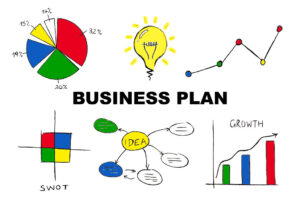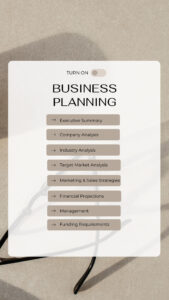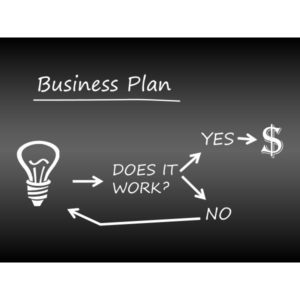Business Plan Examples: The New Way To Write And Action Business Plans
This outstanding little secret that I learnt from Richard Branson after seeing his business plan examples is so good I HAD to share it.
It helped me turn words on a plan, into profit.
And that’s what a good business plan does.
But this secret may come as something of a surprise
You see, it’s finally possible for you to write a business plan.
Then ACTUALLY USE IT to help your business dramatically increase the amount of profit you make over the next 6 months.
Let me explain.
Having a great business plan is a bit like having a foolproof guide to making money.
And I promised to teach you the real secret to writing a strong business plan.
I am now about to keep that promise.
Pay careful attention
A key aspect of growing a business is developing a strong business plan.
In this article, we’ll give your spectacular examples of profitable business plans.
Plans that helped hundreds of members in our coaching programme achieve exponential growth.
And we’ll answer any questions that you might have about creating a plan.

An example of what a good business plan can do…
What Is A Business Plan?
A business plan is a written document that explains everything someone would need to know about your business.
Business plans often have similar examples of questions that they answer. Things like what you want to do, and how you’ll do it.
What do you want to do?
Most companies don’t have a clue.
To them, their business is…
That means they don’t have a compelling vision.
And they don’t know where they are taking the business. (Into liquidation is the likely route if they don’t have a plan).
How you’ll do it…
This is another one that stumps most small business owners.
Even if they do know what they want to do.
They have NO idea how they’ll do it.
Small and medium-sized businesses are the backbone of the UK’s economy.
Yet most of the SME’s in the country don’t know where they are going or how they’ll get there.
Having a business plan is like having a roadmap that guides the direction of the business.
It serves as a blueprint.
A well-written business plan can help entrepreneurs to get focused.
It helps them get clarity on where they should put their efforts.
It can also help identify potential problems and make informed decisions.
Having a business plan is essential for small business owners.
It can help them to secure financing, attract investors, and manage their operations.
A good business plan should include information about the business and its industry.
It should talk about your target market.
You might dive into the marketing strategies you use.
And most good business plans will include financial projections.

Business Plan Examples
There are four main types of business plans:
Business Plan Examples:
The startup plan, the internal plan, the strategic plan, and the operations plan.
The startup plan is the most common of the business plan examples.
Unfortunately, that’s what most business owners do.
They write a business plan to get funding.
Or as an exercise, they know they “should” do when starting out.
And then forget about it.
It never gets seen again.
His BIG SECRET was simple.
Once you’ve written the plan.
USE IT.
He also taught me a vital lesson when writing business plans.
“Although you should use it. You should understand that it will never work out.”
… that one had me stumped.
Why use it if it won’t work out?
Well, the strategy might not work out exactly as you’d hoped.
But if you keep your eye on the goal, and keep pivoting the strategy when things go wrong…
…one day, you’ll get there. If you apply enough persistence and consistency that is.
So the strategy might not work.
But you’ll hit the goal if you keep going.
The start-up plan should outline the steps needed to get the business off the ground.
The internal plan is usually for internal use only. It focuses on specific aspects of the business, such as marketing or operations.
The strategic plan is a long-term plan that sets the direction of the business.
While the operations plan outlines the day-to-day operations of the business.
In the next section, we’ll take a closer look at the three Cs of a business plan.
The Three C’s
The three C’s of a business plan are:
Company, Customer, and Competition.
These three elements are the building blocks of a successful business plan.
And they’re the building blocks to the success of ANY business venture.
The first C stands for Company.
It’s where you focus on understanding the business itself.
It includes information such as the mission statement and the company’s history.
You might include your legal structure, management team, and financial data.
This section should also highlight the unique selling proposition of the business.
Add to that your competitive advantage, and any big milestones you’ve achieved.
The cherry on the cake, your future goals.
The second C stands for Customer.
This is where you’ll focus on understanding the target market and the needs of the customer.
This section should include:
Understanding the customer’s needs is VIp.
Especially for developing a marketing strategy that will resonate with the target market.
The third C stands for Competition.
We’ve all got competition.
This part of the plan is about the competition and its strengths and weaknesses.
This section should include information such as a SWOT analysis of your competitors.
You might also add their market share, pricing strategies, and any other relevant data.
When you know your competitors inside-out, it gives YOU the competitive advantage.
Half of the benefit that comes from having a good plan, comes from the prep.
Analyse your business idea/the company, your customers, and your competition.

Business Plan
How To Write A Business Plan – Examples From The Greats
Writing a business plan can seem like a daunting task.
Imagine how much easier it would be with a step-by-step guide.
With a simple guide, anyone can create an effective plan for their small business.
Here’s how to write a business plan:
1. Executive summary
Begin your business plan with a concise summary of your business. It should explain what your business does to someone that has no idea. You should include things like your vision statement and what your products or services are.
Who your target market is, and financial projections.
Here you should provide a detailed analysis of your business. You could include information about your products or services here too. You might also want to talk about the management team, legal structure, and financial data.
3. Industry analysis
Don’t cheat here. If you’ve completed this market research in 5 minutes, it isn’t good enough. Sure you can piece together a plan. But it won’t help you grow and run your business. Research your industry properly. Then provide a thorough analysis of market trends, competition, and opportunities in the plan.
4. Target market analysis
More market research. Are you starting to see how important it is? First, identify your target market. Then ask them lots of questions. Then when it comes to the plan, you can provide detailed information. You can write about their needs, preferences, and buying behavior.
5. Marketing and sales strategies
Outline your marketing and sales strategies. Once you’ve got detailed research on your target market, marketing get’s so much easier. You should start to understand pricing and how much to charge. After the research, you’ll also know how you should be promoting your business. You’ll know which strategies to choose and how to execute them. Share all that knowledge in your plan.
6. Financial projections
Provide detailed financial projections for the next three to five years. This section should include income statements, balance sheets, and cash flow forecasts.
7. Management and organisation
Detail the structure of your management team. What does it look like now? What will it look like in a few years’ time? Then do the same for the whole organisation. Dig deeper than the management team. Add the roles and responsibilities of every team member you’ll have.
8. Funding requirements
Identify your funding requirements. Do you need a loan? Do you need investors? Provide details about how you plan to raise capital for your business.
One more thing to add. When you’re writing a business plan for the UK market, it’s important to keep in mind some extra tips:
By following these steps and tips, you can create a spectacular business plan. If you USE IT, you’ll guide your business towards serious success.

How to write a business plan
The Essential Components Of A Business Plan
The format and content of a business plan can vary depending on the specific needs of a business.
But there are certain essential components that every plan should include.
The executive summary is the first section of a business plan.
It should provide a brief overview of the business.
Imagine writing it for someone that knows NOTHING about your business.
The exec summary should tell them everything they need to know.
Don’t be too formal with it.
So that they know what they need to about the business.
You should talk about your products or services.
Insert the vision and mission statements.
Add your target market and financial projections.
This section should be concise and engaging, and it should grab the reader’s attention.
You might even add a description that provides a detailed overview of the business.
You could have things like the company history, legal structure, and ownership.
And highlight any competitive advantages.
Or your unique selling proposition that sets the business apart.
When it comes to marketing, you should really know your customer.
So in the plan, outline who your customers are.
What makes them tick?
Where do they buy when looking for a company like yours?
And what are they p’eed off about?
You should also describe the products or services in detail.
Include the features, benefits, and pricing.
The marketing and sales section should explain how the business owner plans to do just that.
Market and sell their products or services.
It should include details on the pricing strategy, distribution channels, and promotional activities.
It should provide financial projections for the business, including revenue, expenses, and profits.
This section should show that the business is viable.
That the owner knows their numbers.
And that the business owner has a solid plan for generating revenue.
If you do those things well, you’ll have a very solid business plan.
But even more important than that.
You’ll have learned so much.
Things that can help you in your business.
Common Questions About Business Plans
Business plans can be a powerful tool for small business owners.
But they can also be a source of confusion and uncertainty.
Here are some common questions that we get about business plans.
Along with some tips to help you avoid the biggest mistakes:
Do I need a business plan?
Not every business needs a formal business plan. Having one can help you stay focused on your goals and give you a roadmap to success. But if you’re seeking funding or investors, a business plan is essential.
Can I write a business plan myself?
Yes! With the right guidance and tools, anyone can write a business plan. But, it can be important to seek feedback from trusted advisors, mentors and coaches. They’ll give you an honest opinion. And they’ll be able to tell if you haven’t done proper market research.
What’s the biggest mistake you can make when preparing a business plan?
One of the biggest mistakes is not doing enough research. You should base a business plan on solid data and analysis. So be sure to spend time researching your industry, competitors, and target market.
How do you end a business plan?
Your business plan should end with a summary of your key findings and a call to action. Make sure to include your contact information and any next steps for the reader.
Summary – Business Plan Examples
In conclusion, a well-crafted business plan is a vital tool for small business owners.
But remember, the prep and the research are even more important than the plan.
Can you imagine knowing what your buyers do a few moments before they decide to buy?
Knowing what makes them tick.
And why they choose the company that they do.
But a plan can also help you to set goals, identify opportunities, and secure financing.
By following the little-known secrets outlined in this article (especially Richard Branson’s number 1 tip), business owners can create a profitable plan.
One that makes them money.
Remember that a business plan is not a one-time exercise.
You should revisit it and update it as the business evolves.
And if you do, you can grow and
become profitable like the hundreds of businesses we’ve worked with.
If you want to make the process easier, there are tons of resources available.
So, don’t wait any longer – start creating your own business plan today.
And take the first step toward achieving your business goals.











